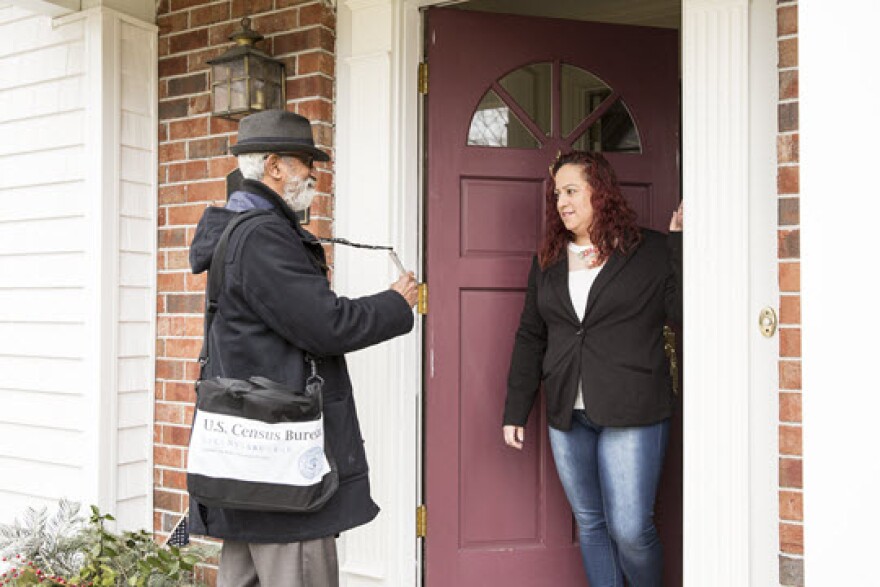Although printing of the 2020 census questionnaire has begun without a controversial citizenship question, President Trump has renewed his commitment to include it in the once per decade survey. Either way, the data stands to have a major impact on public policy in Hawaii.
A counting of every person living in the country is mandated under the U.S. Constitution every 10 years. The primary purpose is to allocate seats in the U.S. House of Representatives, but the Census Bureau also collects highly detailed demographic data that is used by policymakers, business, and nonprofits.
By law, every man, woman, and child living in the country is required to be counted. That has historically involved filing out a mail-delivered paper form, followed by in-person home visits for non-responders.
In 2017, the Trump Administration began exploring the possibility of including a question about U.S. citizenship on the 2020 census. A similar question was included on the 1950 census, but had since been dropped.
Leaders from many cities and states expressed concern that fears over disclosing citizenship status would lead immigrants, both legal and illegal, to avoid being counted, and thus limit or lower those communities' congressional representation.

Some 18 states and 10 cities, Hawaii included, joined a Supreme Court challenge to have the citizenship question stricken from the questionnaire. In June, the court ruled that the Trump Administration had not provided a valid justification for adding the question.
Mayors of some of the nation’s largest cities applauded that decision at the annual U.S. Conference of Mayors meeting, held this year in Honolulu. Mayors of several large border cities opposed the question, including Eric Garcetti of Los Angeles and Ron Nirenberg of San Antonio.
In a statement, Steve Benjamin, the mayor of Columbia, South Carolina, and president of the Conference of Mayors said:
“The nation’s mayors are greatly encouraged by the Supreme Court’s decision. Mayors, both Democrat and Republican, believe that such a question will jeopardize a full, fair and accurate count and undermine the very core of the constitutional mandate of the Census.”
Colin Moore, director of the University of Hawaii Public Policy Center, told HPR that Hawaii is also at risk for undercounting.
“Oahu has a fairly significant non-citizen population. Some who are here legally, some who are here illegally. But the point of the census is to get an accurate count of where people are and how many people are there,” Moore said.

In Hawaii, the census is overseen by the state Department of Business, Economic Development, and Tourism. Eugene Tian, the department’s chief economist, said collecting accurate data is critical to all facets of public life.
“The data are used by policymakers, state agencies, government agencies, and even business for their business planning, infrastructure planning," Tian said. "For example, we want to know how much public housing, how many schools to build, how many healthcare facilities that need to be built, childcare, senior centers. Even shopping malls and residential homes. All this planning depends on census data.”
After seeming to submit to the Supreme Court decision, the Trump Administration has renewed its efforts to have the citizenship question included, even after printing of the question forms without the question began.
By law, data collected by the Census Bureau cannot be turned over to law enforcement or used for any purpose other than compiling demographic statistics.



